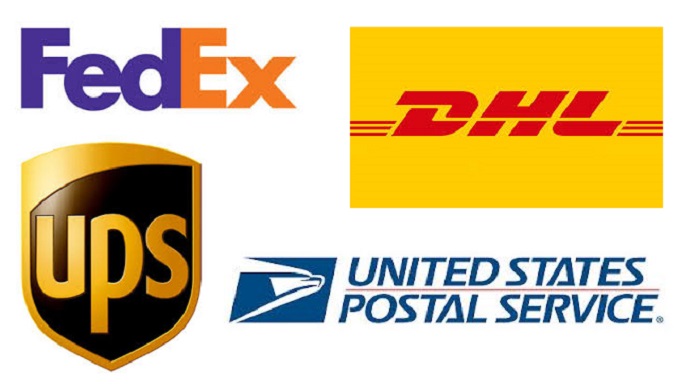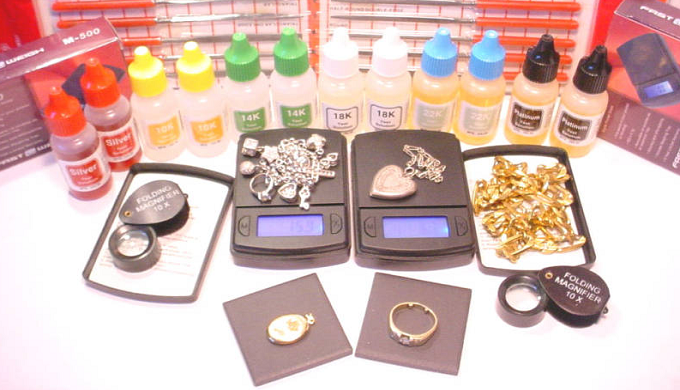eBay is a valuable resource for auction hunters and people who own resale businesses. Although you can get a lot of mileage out of Craigslist and yard sales, eBay continues to be the best way to sell specialty items to the people who want them. From rare collectibles to quirky everyday items, nearly everything can be found on eBay, and the shoppers there are ready and willing to spend money on the things that interest them.
For all its strengths, eBay does pose a few challenges to sellers. One of the most time-consuming and expensive aspects of eBay selling is shipping. If you're not careful, shipping costs can eat into your profits. Fortunately, there are a few techniques that can help save you time and money when sending out your wares.
Calculating Shipping Costs
When you start selling items on eBay, it's important to learn how to calculate your shipping costs before you send the items. This will help you budget, and it's also necessary when posting some of your auctions. If you don't have an accurate estimate of your shipping costs, you may lose money after an auction if the shipping costs more than your initial budget.
When calculating your shipping, you will need to know three things: the weight of the package, the package's dimensions and the distance the item will travel:
- To calculate the weight, purchase a good digital scale. If you will primarily be selling lightweight items like DVDs, jewelry or nicknacks, a kitchen scale might be sufficient. If you'll be shipping larger packages, though, you should look for a scale specifically made for calculating postage. You can usually pick up a scale from another eBay seller for an affordable price.
- Be sure you know what box you will use to ship the item before posting the auction. Measure its height, length and depth and plug those variables into the shipping calculator at http://postcalc.usps.com/ or for the shipping company you plan to use. Over time, you may discover that certain box measurements are cheaper than others while holding the same amount of items. This will help you pick the best shipping materials for future sales.
- Since you won't know who might win your item, you'll need to calculate shipping based on an estimated distance. It's always better to over-estimate for this purpose. To be safe, determine your costs based on a ZIP code furthest from you. For example, if you live in New York, choose a ZIP code in southern California.
It's also a good idea to add a small “handling” fee into your shipping costs to add some buffer room. Just be aware that charging too much for shipping can lose your bidders. It might be best to add some of your shipping costs to the base price of the item to keep the posted “shipping” cost low. You can even use this method to offer “free” shipping to your buyers.
Another good trick is to print your shipping labels at home or use a service that omits the shipping cost from the labels. This way, your buyers won't know how much the actual cost of shipping was. This can prevent you from getting poor feedback from disgruntled buyers who believe you over-charged for shipping.
Advantages and Disadvantages of the Major Shipping Companies
When shipping items, you have a choice between three primary shipping providers: USPS, UPS and Fedex. Each has its own benefits and drawbacks, and some will be better for certain items than others. In most cases, USPS will be the cheapest option, but there are special considerations for certain deliveries:
USPS:
- Will almost always be the cheapest option
- It can be hard to get claims resolved if packages are lost or damaged
UPS:
- Is great for shipping large or bulky items
- Has a great tracking system
- Doesn't put the shipping price on the label, so your buyers won't know the cost
- They sometimes charge a “gas money” fee if they're delivering to a rural location
- Will not ship to a P.O. Box
FEDEX:
- Tends to be the fastest option
- Sometimes low-balls the shipping estimate and costs more than you had anticipated
If you're shipping with UPS or Fedex, you have the choice of shipping without boxing the item. If it's oddly shaped or bulky, however, it can sometimes be cheaper to use a box as the handling fees will be lower.
Tips For Keeping Costs Low
Once you know how much your shipping will cost, you can begin finding ways to shave off expenses. There are multiple ways to do this, depending on the item you're shipping and the company you use. In most cases, the Postal Service will have the cheapest shipping. The flat-rate shipping, or “if it fits, it ships,” can be a very good deal if you choose your packaging carefully. Here are some tips:
- If you're shipping books, DVDs, CDs, etc., use the Postal Service's “media mail” rather than flat-rate shipping or regular first class. It's cheaper than regular shipping by weight, and it usually ships quickly.
- In addition to flat-rate boxes, which will ship for the same price regardless of weight, you may also be able to use regional rate boxes. If you know where you'll be sending the item, these can be very affordable.
- When shipping items, use the smallest flat-rate box you can reasonably cram the item into without damaging it. If it's not too fragile, try to fit it into an envelope instead of a box. As long as the envelope will seal, you can ship it. You would be surprised at how many things you can fit tightly into one. As an added bonus, fitting items into the smallest possible package will save you on packing materials.
- For light-weight items, the flat-rate shipping may not be the best deal. If you're sending something like jewelry or other items that weigh less than a pound, check to see if you could mail it first class for a lower rate instead.
- Once you've weighted and measured your packages, print out the shipping labels from USPS at home. They're cheaper than the ones you get at the post office. You can even have them picked up from your house. Arrange to ship all of your items on the same day to economize pickup or delivery times.
When you ship with flat-rate shipping, the USPS will provide the boxes to you free of charge. If you're using UPS, Fed-Ex or parcel post, you will need to obtain your own packing materials. This can become expensive if you're not careful. Here are a few tips for reducing the cost of your materials:
- Rather than using bubble wrap or packing peanuts, consider using shredded paper. When you're cleaning out storage units, you're bound to find a ton of useless paper. Invest in a paper shredder and turn those shreds into packing material. It'll be free, and it's a good use for all of that trash.
- For fragile items and those that need bubble wrap or other more sturdy packing, stop off at a moving or storage company. They will sell bubble wrap in bulk for a lower price than what you could get at an office supply store.
- Ask the storage facility if it has any shipping materials you can get for free or a good price. If you have a relationship with the managers from frequenting auctions, they may be willing to give you free boxes.
- If there are any box manufacturers in your area, stop off and see if they have any misprints, overruns or other unwanted boxes. You can buy these in bulk for a very good price or even get them for free.
- Grocery stores, liquor stores and other retailers usually have a lot of free boxes. Stop off and ask if you can pick some up. Just be sure to get boxes that can be mailed; some will have printing on them or open bottoms. If a box has things on the outside preventing it from being mail-legal, consider turning it inside out and taping it back together.
- Avoid buying too much tape in bulk. Tape can become brittle over time, so large quantities quickly become useless. Only buy as much tape as you'll use in a month or two, and restock frequently.
On the topic of shipping materials, one thing should be clear: Don't use free boxes from the Post Office if you're not shipping with USPS. Using the free boxes offered by USPS or any other shipping company for any purpose other than shipping through that company is theft. If you get caught, you can be fined, so it's best just to avoid the temptation.
A Few Notes on International Shipping
International orders pose a unique set of challenges. In addition to the heightened cost of shipping, you also need to deal with customs and tariff fees. Additionally, some international buyers may not be the easiest clients to work with, especially if there's a language barrier to overcome. Indeed, the hassles of international shipping are enough to keep many people from dealing with overseas buyers altogether. If you do decide that it's worthwhile to allow foreign buyers, here are some tips to make things simple:
- When shipping overseas, always use USPS rather than Fedex or UPS. The tariff fees will be lower this way. Additionally, ensure that your buyer knows he's responsible for any fees after the item has shipped.
- Double-check to make sure it's legal to ship the item overseas. There may be customs limitations on certain types of items. For auction hunters, this isn't usually an issue since most limitations are placed on food items and other consumables, but it's something to be aware of.
- Be sure that the description you use on the customs form is detailed and accurate. The item may be opened by the post office, and you can get in trouble; lying on a customs form is a felony. In addition to lying about the contents, some people may try to get you to mark down the value of the item or designate it as a gift to reduce the tariff they must pay; don't do this.
- Make sure that the funds clear before you ship the item. There are some international shipping frauds, so having the money on-hand before you send the goods can help protect you.
- There's a popular scam that's done by some unscrupulous buyers. They will win the auction, then wait for 30 days and file a “did not receive” complaint with eBay to receive a refund. If you have no way of proving the item was delivered, you may be forced into giving this refund. To protect yourself, identify a service that will track your international deliveries. Don't rely on USPS tracking alone as it's notoriously unreliable. Instead, use a system like http://www.track-trace.com/.
- You can place limits on who can bid on your auctions. Sometimes, however, people will circumvent this. If an auction is won by someone in a location you don't ship to, refund the money right away and choose “buyer is from a country I don't ship to” on the eBay interface.
- Some countries are easier to ship to than others. Canada, Australia and the United Kingdom tend to be easy to work with; developing nations usually have worse shipping problems. It's up to you to decide what countries are worth the risk.
Do I Need Insurance?
No matter what shipping company you use, you'll have the opportunity to insure the package. This insurance usually costs a few dollars and protects both the buyer and seller against damage incurred during shipping. For example, if items are lost or broken, you – the shipper – will be reimbursed for the cost of the item. You are then responsible for refunding the buyer. If the package arrives unharmed, you lose the cost of insurance.
While insurance is a good idea in theory, it can be unwieldy in practice. It can take a long time for claims to be resolved, and the provider may need to see proof of a damaged package before paying. If you're sending the item to a buyer, that buyer may not be willing or able to bring the damaged goods to the post office.
A better option may be to opt for third-party insurance rather than using the shipping company's own insurance. This is often cheaper and faster than more traditional types of insurance, and many of the third-party providers will insure international purchases. These companies can sometimes be hard to find. Here are some reviews to help you pick an insurer for your packages: http://www.shipping-insurance-reviews.com/
When you're shipping items privately, insurance isn't always worthwhile. For eBay sales, however, buying insurance is usually a good deal. It's up to you, though, to decide whether the extra expense is worth it.
Feel free to ask a question or add something to this article in the comments section below.










